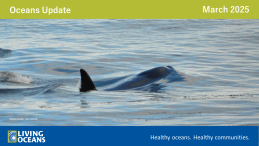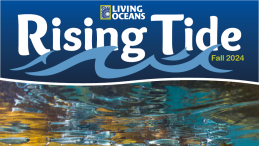Newsletters
Stay up to date with Living Oceans!
Oceans Update is sent out four times a year direct to your email, with stories from our campaigns to protect ocean health and coastal communities. Plus, receive Action Alerts so you can get involved.
Rising Tide is our annual newsletter, sent direct to your email or as a print version mailed right to you!
Your information will never be sold or traded. See our Privacy Policy.


